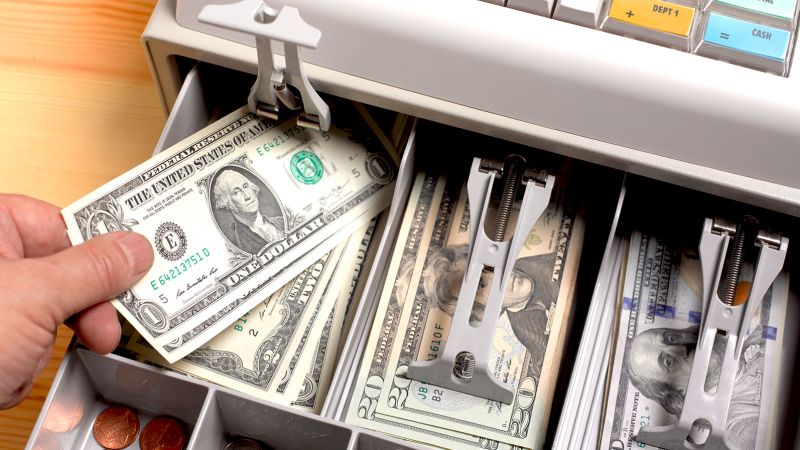
America’s small businesses felt gloomier in August as they continued to struggle with inflation and hiring qualified workers, according to a survey from the National Federation of Independent Business released Tuesday.
Optimism among more than 600 small businesses surveyed declined in August from the prior month, snapping a three-month streak of improving sentiment. The August reading was “the 20th consecutive month below the 49-year average of 98,” according to a news release. Expectations of better business conditions over the next six months deteriorated seven points in August from July, a much better reading than last June’s, “but still at recession levels,” the NFIB said.
The share of small business owners saying they had job openings that were hard to fill stood at 40% last month, down slightly from July but still historically high.
“With small business owners’ views about future sales growth and business conditions discouraging, owners want to hire and make money now from strong consumer spending,” said Bill Dunkelberg, the NFIB’s chief economist, in the release. “Inflation and the worker shortage continue to be the biggest obstacles for Main Street.”
A weaker economy, but slower inflation
Inflation has slowed in the past several months as the Federal Reserve aggressively raised interest rates to their highest level in 22 years. The Labor Department releases its August Consumer Price Index on Wednesday, which is a closely watched inflation measure. The US economy remains on strong footing, despite rapid rate hikes, with consumer spending jumping 0.8% in July and retail sales advancing 0.7% that month. The summer was one of robust spending on films, concerts, and travel.
But American consumers face a number of economic obstacles this year, including the resumption of student loan payments next month, dwindling savings accounts, a tougher time accessing new credit and another expected interest rate hike.
The Fed’s latest “Beige Book” report, which is a compilation of survey responses from businesses around the country, showed that many firms are bracing for weaker consumption in the months ahead, especially for in-person experiences that Americans splurged on after pandemic-era shutdowns.
It remains unclear exactly how much those factors will weigh on the US consumer, but some economists have grown more bullish that those headwinds won’t throw the economy into a sharp downturn. Goldman Sachs reduced its bet of a US recession recently.
The economy’s surprising resilience has also given some economists hope that the Fed can pull off a soft landing, a scenario in which inflation slows to the Fed’s 2% target without a sharp uptick in unemployment.
“The odds of the Fed achieving a soft landing look much better today than they did six months ago,” said Simona Mocuta, chair of the American Bankers Association’s Economic Advisory Committee and chief economist at State Street Global Advisors, in a statement. “However, the battle against inflation is not yet won, so the Fed must remain vigilant. At the same time, there is a better balance between supply and demand across the board, in goods, services and labor markets. This helps the ongoing disinflation process.”